Most people try yoga or meditation to find peace and shut off from the outside world, but what about plunging into shark-infested waters?
For Newburgh scuba diver Lauren Smith, being in the sea and surrounded by the infamous undersea predators is when everything else fades away.
“People think I’m mad,” she laughed. “You’ve obviously got to be paying attention, so I think when you’re in that moment that’s all there is.
“There’s no background noise of ‘I need to do this’ or ‘I forgot to do that’. You’re just in the water with the animal and experiencing it.”
She admitted it may be a bit of an “extreme measure” to find some peace, but this isn’t the only reason she loves swimming with the stuff of some people’s nightmares.
Ever since finishing her marine biology PhD at Aberdeen University specifically researching different shark migrations, she has spent as much time as she can scuba diving with the fearsome creatures.
And while she lives in the north-east and still regularly dives off the coast of the Moray Firth, Lauren’s love for sharks has taken her to more tropical waters.
Most recently, her passion led her to the Bahamas for a dive like no other — and she wants to show everyone why the animals deserve our love and respect, rather than fear and prejudice.
Diving with ‘big, wild predators’ in Tiger Beach, and how to keep them at a distance
Tiger Beach is a shallow underwater reef just off the Bahamas, with seagrass beds, coral reefs and sandy seabeds.
The area is made famous because of tiger sharks swimming around. And that’s exactly why Lauren went for a dive.
Leaping into the clear, tropical water was an “incredible” experience for the marine biologist because there were just so many sharks. She laughed and said it was “so sharky” that divers had to time jumping off the boat right to avoid jumping onto a shark.
There were at least seven female tigers “cruising around” the divers at a time, and around half of them were pregnant.
But, dozens of other sharks were also circling around, including reef sharks and lemon sharks.
Although Lauren has worked with tiger sharks in the past, this was a very different experience for her. She said it was interesting to watch the predators interact with divers and discover their personalities.
“With the tiger sharks, you’ve really got to pay attention,” she added. “They are big, wild, predators and they will pick out the weakest, and if you’re not paying any attention to them they will come closer and closer and closer.
“Whereas if you look them in the eye when they’re swimming past you, they literally will just look straight back at you and they realise that you’re watching them.
“They’ll be like touching distance close, but they won’t try to come in and bump you or anything.”
Tiger sharks take diver’s ‘number one spot’
While Lauren has been “very lucky” to have dived with so many different shark species, including great whites around Guadalupe Island off Mexico, she has never hesitated before diving in.
She said she’s “mostly just excited” to get back in the water and has never felt nervous beforehand.
“I’ve only ever got out of the water once,” she explained. “I was not scuba diving, I was snorkelling and there were some really feisty bull sharks. I mean, their behaviour was just so erratic that I did get out of the water then.
“So I’m not completely mad — you’ve just always got to bear in mind they’re wild animals in their environment.”
She loves diving in these warm waters to experience the sharks, but Lauren is also a keen photographer and takes pictures and videos to share her experiences with others.
But after diving with Epic Diving in Tiger Beach, she said the tigers have now taken the “number one spot” for her.
‘Sharks are worth more alive than dead’
As well as researching the ocean predators, Lauren is just as passionate about protecting the formidable creatures — which she explained are important for the ocean and play a key role in the ecosystem.
She explained that sharks are protected in the Bahamas because they are “worth so much more alive than dead”, and the archipelago is a popular diving spot for tourists because of the encounters they can have with them.
But they aren’t protected everywhere, as Lauren explained that the shark meat industry is “massive” these days, as well as the “really wasteful” fin trade.
“There’s just loads of shark meat going around the market,” she said.
“It’s quite interesting how lots of different countries are involved.
“I think Spain is the main driver of shark meat, it’s really weird how you can get shark fillets and things like that.
“There’s so much global industry involved in it, and a lot of practices that just aren’t ethical at all in the fishing of them.”
Scottish sharks ‘just as cool’ to local diver
And although she’s fully aware there won’t be the same tourism industry in Scotland, or even the UK, she said there are a lot of “really cool” species in our own waters.
Small cat sharks, porbeagles and skates can all be found around the Scottish coast — as well as seasonal visitors like the mammoth basking sharks.
And as well as diving in more tropical waters, Lauren loves exploring the Moray Firth and researching the iconic flapper skates with Chris Rickard, aquarist at Macduff Marine Aquarium.
They both run Shark and Skate Scotland on Facebook, and last summer they found a massive flapper skate off the coast of Macduff in a spot they dive in regularly.
They have also found areas where skates are laying eggs, so the pair is hopeful it’s a good sign that the protected species are starting to recover.
She finished: “I’m as passionate about cold water diving as I am about warm water diving. It’s quite different, but the message is the same in terms of sharks are these incredible animals that have been around since the dinosaurs walked the earth.
“We’ve still got them here today. And you know, trying to understand them trying to show showcase them to people using the photography and filming, hopefully just gets them to care more and protect them and their environment more as well.”
You can follow Lauren’s underwater adventures on Instagram @saltwaterlifeuk
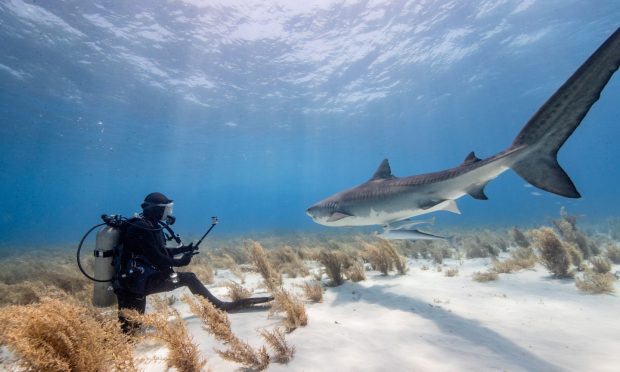
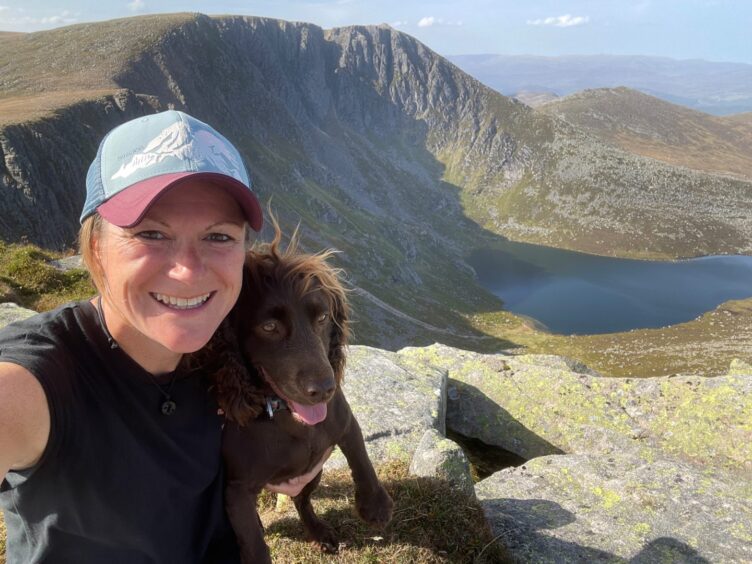
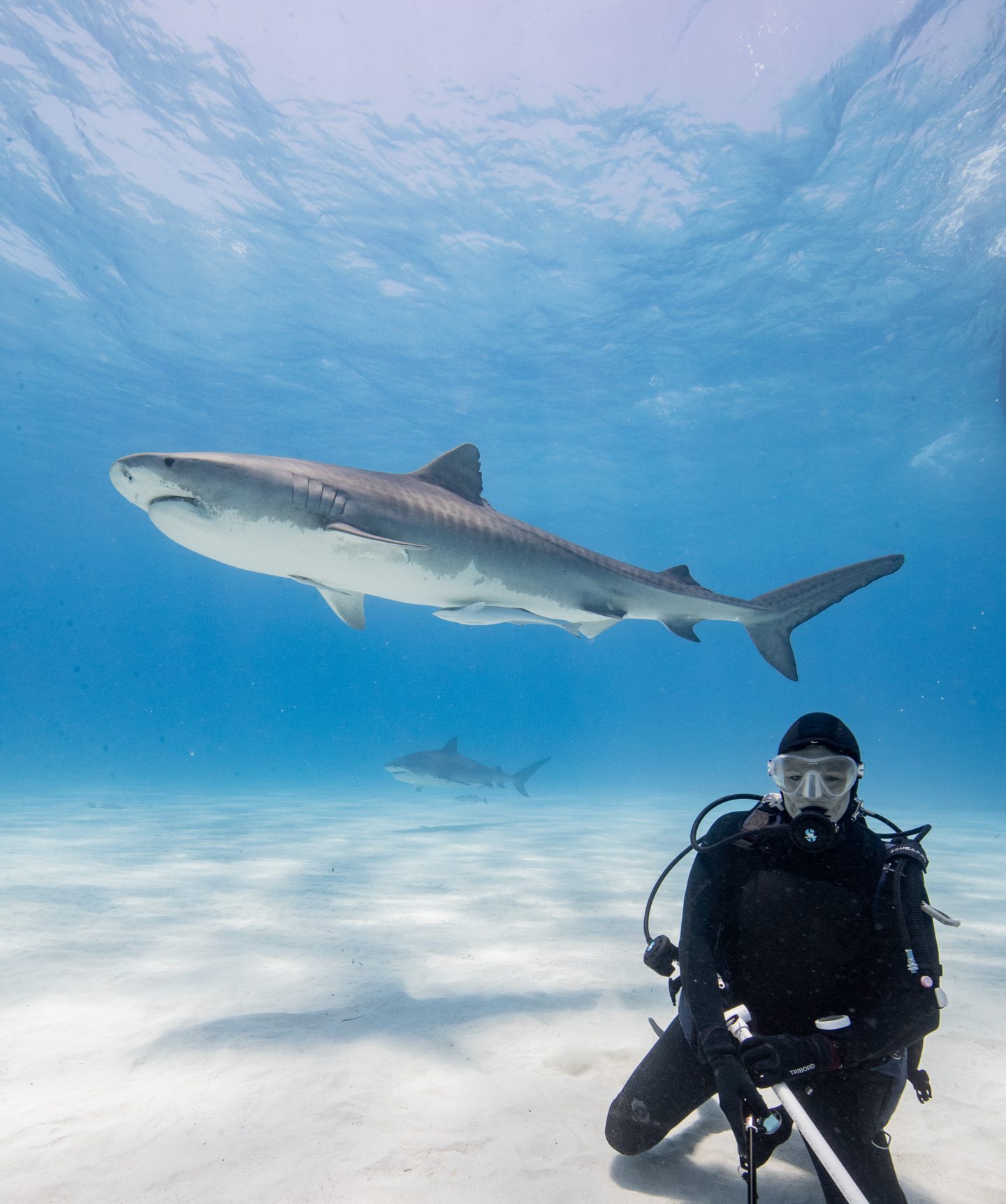
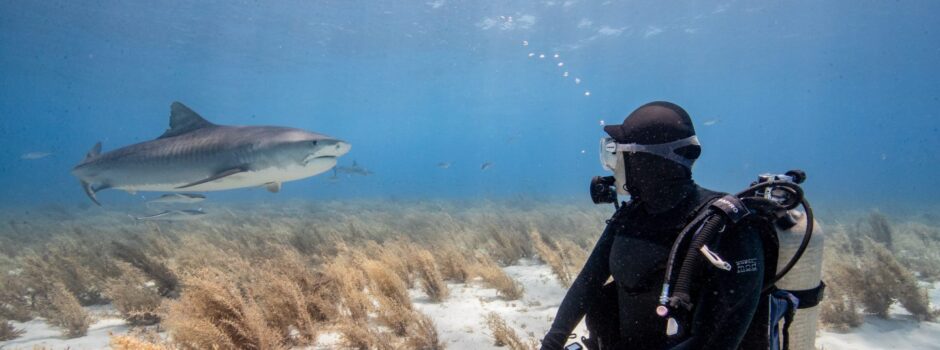
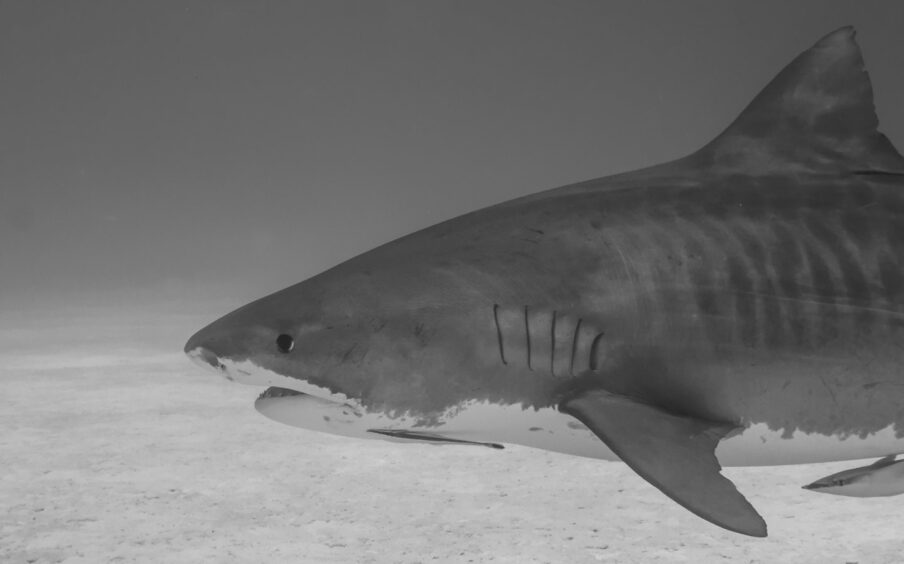
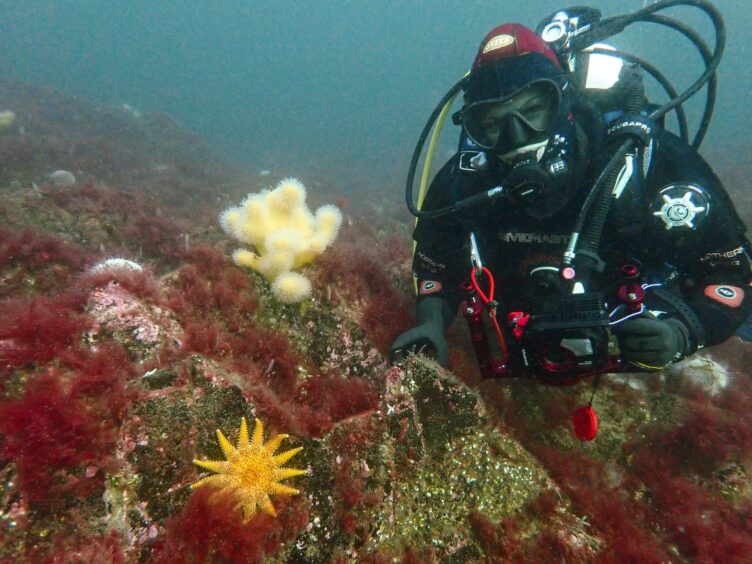
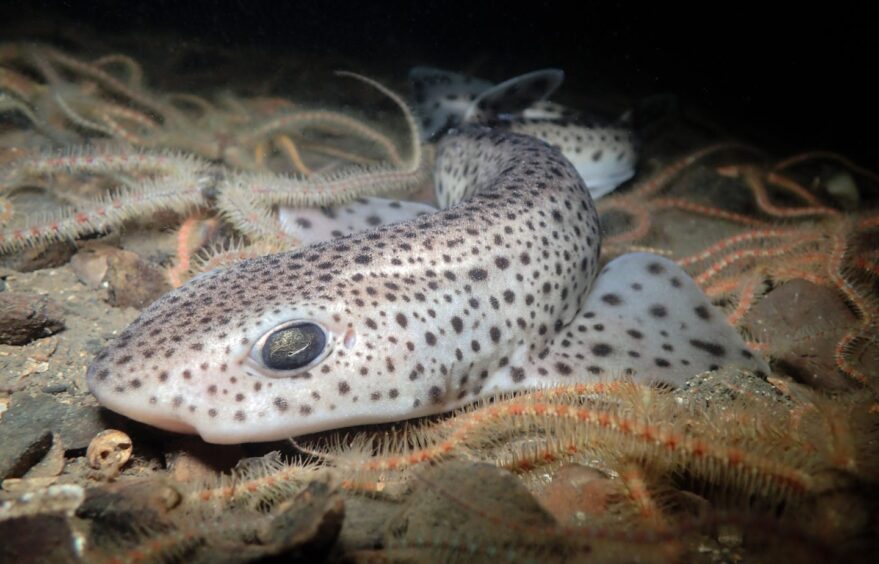
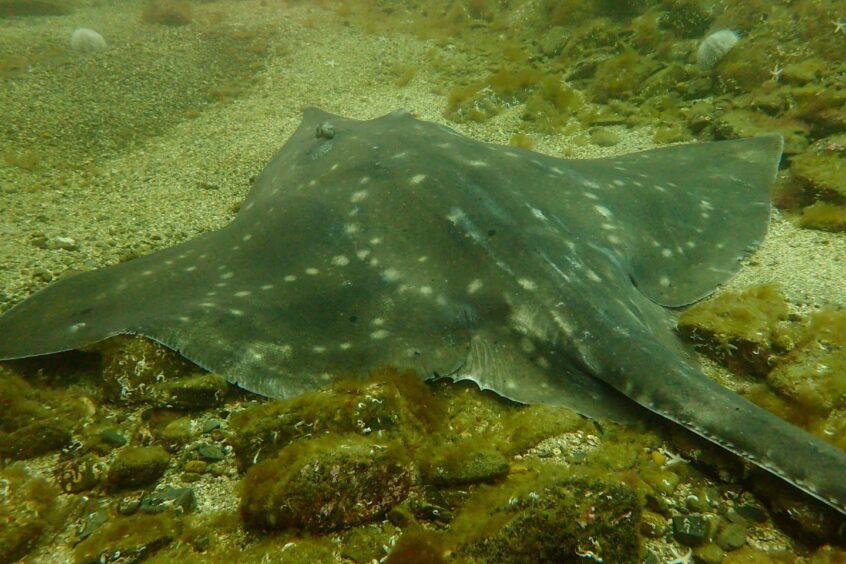
Conversation